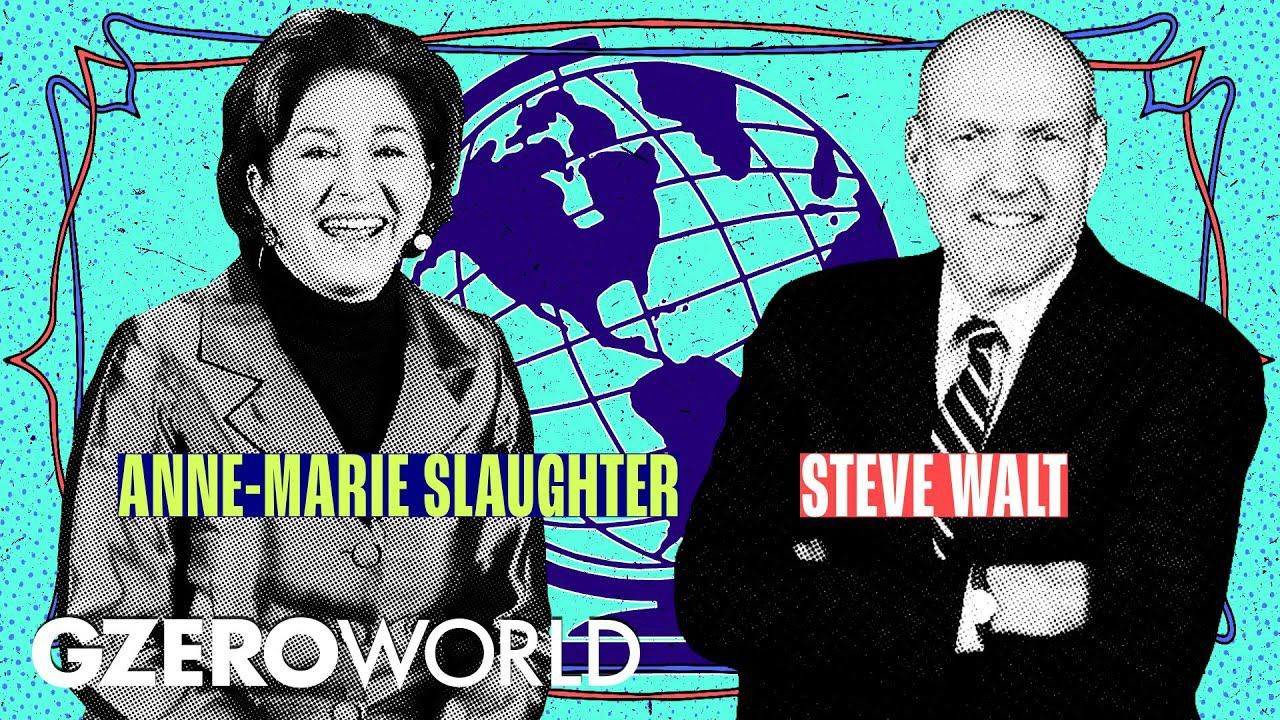
To fix our broken international political system, we need a crisis. For instance, a pandemic, climate change, Big Tech having too much power, or a Russia invasion of Ukraine. But it must be a crisis that's so destructive it forces us to respond fast, and together — like World War II. That's the crisis that created the international system we have today, and kept the peace until now. On GZERO World, Ian Bremmer talks to Anne-Marie Slaughter, former US State Department official and now CEO of New America, and political scientist and Harvard professor Stephen Walt about the war and other crises.
Slaughter and Walt debate key issues such as the tough choices NATO faces on expanding to more countries but not Ukraine or other former Soviet republics, what we learned from the pandemic, and whether there are still reasons for hope in our current gloomy political environment. "If you're going to use a crisis effectively for change, you have to be able to have the right time horizon, the right group of countries, and a very specific set of goals," says Slaughter. But Walt believes we can't tackle all these crises at the same time — otherwise, at some point people will just throw up their hands and say it's just too hard.
For Walt, it was unfortunate to have "a lot of the wrong leaders in a lotta the wrong places at exactly the wrong time," which prevented for instance the US and China from coordinating a more effective global response to the pandemic.
Slaughter thinks we do have the ability to address many of the problems affecting the Global South because the most powerful countries are now all over the world. Many voices of people who need to be at the table — civic groups, CEOs, women, people of color — are not being heard.